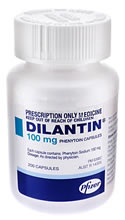Top Class Actions’s website and social media posts use affiliate links. If you make a purchase using such links, we may receive a commission, but it will not result in any additional charges to you. Please review our Affiliate Link Disclosure for more information.

The research team was headed by Dr. Wen-Hung Chung of the Chang Gung Memorial Hospital in Taiwan. He and his group investigated the genetic factors associated with severe Dilantin side effects. The study started in 2002 and concluded this year, the results consisting of 105 cases of Dilantin side effect reports, with 61 of them being Stevens Johnson Syndrome and Toxic Epidermal Necrolysis (TEN). The patient population studied was approximately 3,655 people from Taiwan, Japan, and Malaysia.
From these results, not only had it been identified that Dilantin and its generic versions could cause extreme reactions like SJS, it had also indicated that certain genomes, or patients with certain genetic traits, may be more susceptible to experiencing this reaction.
“Our study identified genetic variants of metabolizing enzymes, including CYP2C9*3, known to delay the drug clearance, as the important risk factors for phenytoin-related severe cutaneous adverse reactions,” said researcher and author of the study Shuen-Iu Hung PhD., of the Institute of Pharmacology at National Yang-Ming University in Taipei, Taiwan.
According to Dr. Hung, patients with this deficient variant are 11 times more likely to develop SJS or TEN from taking Dilantin or one of its generics. Additionally, he also recommends that physicians consider the risks that certain drugs may present to patients with this genetic trait before prescribing it.
Ultimately, the study concluded that additional research is needed to further investigate this theory in different patient populations, to determine whether additional warnings may be needed for certain patients. These findings were published in the August 6 issue of JAMA (Journal of the American Medical Association).
Overview of Dilantin SJS
Dilantin is an anti-convulsant medication that is normally prescribed to patients who suffer grand mal seizures and temporal lobe seizures. For years, this drug and its generic variations have been on the market to serve the psychiatric community. Both the brand name and generic variations of Dilantin have been blamed for causing the severe skin reactions of SJS and TEN.
Stevens Johnson Syndrome is commonly characterized by red or purple skin lesions that appear on the surface area of the skin. Its more severe cousin, Toxic Epidermal Necrolysis is known for causing the same, but in much greater volume. In both cases, the infected areas of the skin detach and create the image of almost melting off the body. Due to the nature of these injuries, TEN and SJS patients are treated in the burn units of hospitals in order to receive skin grafts.
Lasting SJS side effects include permanent skin damage, blindness, and organ damage. When patients experience this condition, doctors often misdiagnose it because the condition starts with flu-like symptoms. However, if medical intervention does not occur in time, the condition could be fatal.
In general, Dilantin SJS lawsuits are filed individually by each plaintiff and are not class actions.
Do YOU have a legal claim? Fill out the form on this page now for a free, immediate, and confidential case evaluation. The attorneys who work with Top Class Actions will contact you if you qualify to let you know if an individual lawsuit or class action lawsuit is best for you. Hurry — statutes of limitations may apply.
ATTORNEY ADVERTISING
Top Class Actions is a Proud Member of the American Bar Association
LEGAL INFORMATION IS NOT LEGAL ADVICE
Top Class Actions Legal Statement
©2008 – 2024 Top Class Actions® LLC
Various Trademarks held by their respective owners
This website is not intended for viewing or usage by European Union citizens.
Get Help – It’s Free
Help for Victims of Stevens Johnson Syndrome
If you or a loved one were diagnosed with Stevens Johnson Syndrome (SJS) or toxic epidermal necrolysis (TEN) after taking a prescribed or over-the-counter medication, you may be eligible to take legal action against the drug’s manufacturer. Filing an SJS lawsuit or class action lawsuit may help you obtain compensation for medical bills, pain and suffering, and other damages. Obtain a free and confidential review of your case by filling out the form below.
An attorney will contact you if you qualify to discuss the details of your potential case at no charge to you.
Oops! We could not locate your form.












